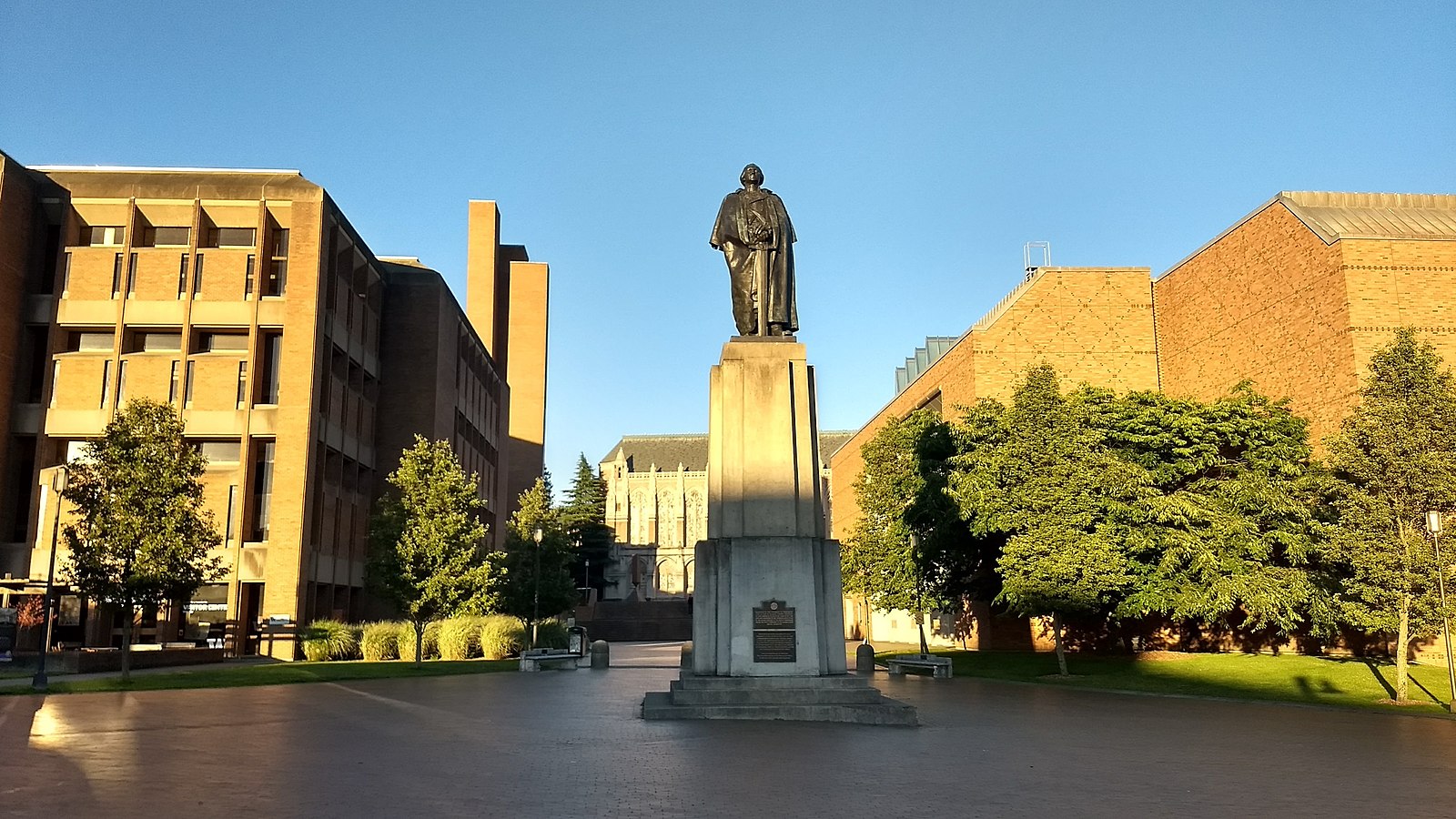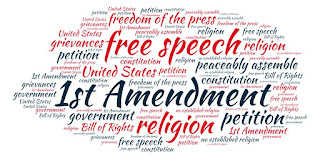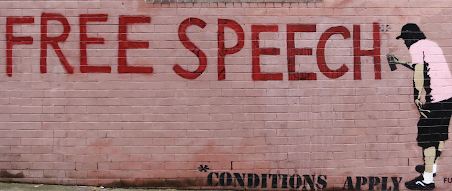Required Faculty Diversity (DEI) Statements Undermine the Future of the University of Washington and Other Colleges
At the University of Washington and many other academic institutions, applicants for faculty positions must complete a Diversity, Equity, and Inclusion (DEI) statement that describes their past actions in support of DEI and how they will foster DEI if appointed. In addition, these required statements generally demand that the applicant express support or commitment to DEI principles.
As will be shown below, such DEI statements are of questionable legality, suppress viewpoint diversity, and politicize academic institutions. They are destructive to the foundational values of academia, create a monoculture of opinion, act as a litmus test of political belief, and often hurt the groups they are meant to support.
DEI Represents the Politicization of the Academy
Although the terms diversity, equity, and inclusion superficially appear to be general and innocuous, the working definitions used in most universities are highly partisan and politicized. Diversity generally refers to encouraging the representation of certain identity groups, based on race, color, ethnicity, and sexual orientation. Equity refers to equal outcomes for all groups, not equality of opportunity. And Inclusion generally only encompasses certain favored groups.
The political nature of such DEI ideas is highlighted by the huge differences in support of DEI across the political spectrum. In a recent poll of 1491 faculty by the non-partisan group FIRE (Foundation for Individual Rights and Expression), 75% of liberal or left-leaning faculty supported mandatory diversity statements while 90% of conservative faculty and 56% of politically moderate faculty saw them as inappropriate political litmus tests. Several Republican-led states are abandoning DEI statements, in contrast to states where the Democratic Party is dominant. Thus, DEI faculty statements require the support of ideas that are only favored by only one side of the political spectrum— the very definition of politicization.
The First Amendment bars the government from compelling people to express ideas they do not want to say. Thus, it is illegal for a state university, such as the University of Washington, to compel faculty speech, and this is particularly egregious if the required speech is political in nature.
To illustrate, a number of the current University of Washington faculty job announcements compel speech by requiring that the applicants state their commitment to DEI principles. For example, the applicant for an Assistant Professor position of School Psychology in the UW College of Education must provide “a one-page diversity statement describing your experience and commitment to diversity, equity, and inclusion.” This is clearly contrary to the First Amendment.
As noted by University of Chicago professor of law Brian Leiter “the new diversity statements require candidates to profess allegiance to a controversial set of moral and political views that have little or no relationship to a faculty member’s pedagogical and scholarly duties.”
Illegal compelled speech in DEI statements is such an obvious problem that one of the leading advocates of faculty DEI statements, University of California, Davis, Law Professor Brian Soucek has noted that such compelled speech regarding DEI should be avoided (he states this in a debate with Professor Leiter). Instead, Professor Soucek recommends that DEI statements should only deal with actions: past actions demonstrating support for DEI and promised future actions that will enhance DEI ideas and principles. However, one should ask: if compelled speech is illegal, how can compelled actions be less problematic? Is it not worse to compel someone to take an action they disagree with than being forced to speak words they find problematic?
The compelled speech of faculty DEI statements is similar in nature to the infamous University loyalty oaths of the late 1940s and early 1950s, where applicants had to attest to their commitment to American institutions and rejection of communist ideology. The fostering of such loyalty statements by major universities (such as the University of Washington) is now seen as undemocratic and illegal, representing an unfortunate stain on the reputations of major academic institutions.
Abuse of Faculty DEI Statements
DEI statements have substantial potential for abuse, such as serving as a litmus test of political belief, screening out candidates of particular backgrounds and beliefs, or giving preference to candidates from specific racial, ethnic, or sexual orientation groups. Such statements also have the potential to lessen the quality of faculty teaching, research, and service, or to reduce the diversity of viewpoints among college faculty.
At some institutions, such as some schools in the University of California system, DEI statements have been used to filter faculty candidates BEFORE their academic and teaching credentials were considered. Thus, a brilliant potential faculty member destined for Nobel-Prize-level contributions would be rejected if her commitment to DEI was not sufficient. For example, certain rejection would occur for any faculty candidate whose statement simply noted that all students should be treated equally as individuals and that no student should be favored or penalized for their background. Political views, rather than promise in research and teaching, is the key filter at the UC system.The required California faculty DEI statement was used (illegally) to give preferences to those from certain races, ethnicities, and sexual orientations (affirmative action is prohibited by law in California). We know this because of a summarizing report at the University of California, Berkeley, for 2018-2019. For a life-science cluster position, 896 individuals applied, with 54% being white, 26% Asian, 3% African American, and 13% of Hispanic background. Of these candidates, 679 (78%) were rejected because of their DEI statements before their research and teaching potential were considered. After the DEI filtering review, only 14% were white (down from 54%), 59% were Hispanic (up from 13%), 18% were Asian (down from 26%), and 9% were Afro-Americans (up from 3%). It is clear that profound racial discrimination and preferences occurred, with the DEI statement being the central tool. Jim Crow racism was wrong, racism based on required DEI statements is also wrong.
Since there are no explicit measures for scoring DEI statements, such statements are inevitably subjective and reflect the opinions, prejudices, politics, and preferences of the faculty in each academic department. More progressive/left-leaning disciplines, such as education, social work, and Global Public Health will tend to demand the most political commitment of faculty candidates, ensuring a viewpoint monoculture, a problematic situation for an academic community where ideas need to be challenged and probed.
A potent example is found in a current job announcement for an Assistant Teaching Professor in Global Health at the University of Washington.
"We are dedicated to hiring faculty who model the principles of diversity, equity, inclusion, anti-racism, and the decolonization of global health through all elements of their academic portfolio. We view equity and social justice as essential to our mission of building health excellence. The successful applicant will be expected to embody these values in their teaching, mentoring, and service activities, and in any research or practice activities in which they engage. To be considered for this position, all applicants must have a demonstrated commitment to antiracist and decolonizing principles, and a willingness to continue growing new skills in alignment with our school’s EDI Roadmap. "
An applicant with moderate or conservative views, or not willing to “align” with the school’s EDI roadmap, would be rejected. So much for diversity of viewpoint in that department.
The politicization is also occurring in more moderate STEM departments. For example, a young faculty member in a UW engineering department opposed an initiative to have faculty DEI statements required of present faculty (when they came up for advancement). Some left-leaning members of his department then opposed a merit raise for him. Fortunately, other faculty objected to such inappropriate politicization, and the raise was approved. Not surprisingly, this highly promising faculty member decided to leave the UW the following year. There are stories like this in other departments.
No Evidence that Mandatory DEI Statements Produce Benefits
One would think that before universities required DEI statements from thousands of faculty applicants, with considerable effort and expense required for their generation and review, some evidence of the value and efficacy of such statements would be required. Surprisingly, no such evidence exists. An extensive search of the academic literature finds no published studies documenting the value of faculty DEI statements, and inquiries to DEI statement supporters reveal they have no evidence to cite. In contrast, faculty DEI statements have substantial potential to cause harm and division.
It is important to note that faculty candidates can always voluntarily note any contributions or interest in DEI in their faculty applications.
Just the Tip of The Iceberg
Faculty DEI statements are just one example of a massive transformation that has undermined American institutions of higher learning. Universities like the UW have put huge resources into a DEI bureaucracy and associated programs, which has led to a reduction in faculty and student viewpoint diversity. Many faculty are afraid to speak their minds on controversial topics. The large financial outlays for highly paid diversity Deans, staff, and “advisors” have reduced support for teaching and research and increased the cost of college tuition. The recent events at Stanford Law School, where a diversity dean hectored a visiting speaker, is only one example of the profound deterioration that has occurred at leading universities.
Summary
If one wanted to design a measure to undermine the essential foundations of an academic institution, few would be more effective than mandatory DEI statements for new faculty. It reduces the diversity of viewpoints of new faculty and encourages a faculty monoculture of similar political and social ideas on one side of the political spectrum. It undermines academic quality by steering decision-making away from the teaching and research capabilities of prospective new faculty to a consideration of their social and political views. Both academic institutions and their students suffer as a result, with no studies showing evidence of any benefit. On top of these obvious problems, DEI statements often represent illegal compelled speech.










Comments
Post a Comment